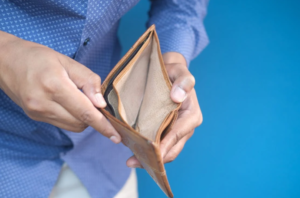When you’re struggling with debt, being proactive and tackling it as early as possible is often the best strategy. However, if you’re not able to take care of things with something as simple as making some room in your budget, it’s important not to get paralyzed. While you might be afraid of the consequences, there are still options, so let’s explore some.

Talk To Your Creditors
Getting in touch with your creditors as soon as you know that you’re not going to be able to make payments is always wise. If you can do it before missing a payment, that’s even better. Many credit card companies, banks, and even medical providers offer hardship programs, lower interest rates, or payment deferments if you explain your situation. Getting out of debt is a lot easier when you’re working with someone who is able to make things a little easier on their end. If they do come to any kind of agreement, then make sure to get it in writing so that there’s no confusion down the line.
Explore Debt Management And Settlement
If your income, as it is, can’t support how much debt you’re in, then you might want to look into options like a debt management plan. This consolidates multiple payments and may reduce interest rates. For more severe cases, you should look into debt settlement, which can see you negotiating to pay a set amount of the debt upfront with your creditors in order for them to close the account. However, this step can hurt your credit more, so you should see it management is available first.
Understanding The Role Of Bankruptcy
A lot of people see bankruptcy as a total end to their financial life, but, in reality, it can be something more like a legal reset tool. If you’re drowning in debt that you have no way of paying back, even with management and resettlement options, then finding some legal guidance for Chapter 13 bankruptcy can put an end to the collections, wage garnishments, and any lawsuits aimed at you. It can also eliminate certain debts or allow a structured repayment plan. While bankruptcy does affect your credit, it’s often better than years of missed payments and stress.
The Sooner You Act, The Better
The worst thing that you do with your debt is simply ignore it. The tips above should show that you always have a way forward, even if it may come at a cost. The longer you wait to deal with unmanageable debt, the worse it can get. Not only can your debt get increasingly higher, but your creditors can get started with the collections process, which can affect your financial health for the foreseeable future. Get in touch with them to begin with, to at least halt that process from continuing on ahead.
With the tips above, hopefully, you should see that you always have options when it comes to your debt. Consider which of the above strategies works best for you and start making plans to go ahead with it now.
